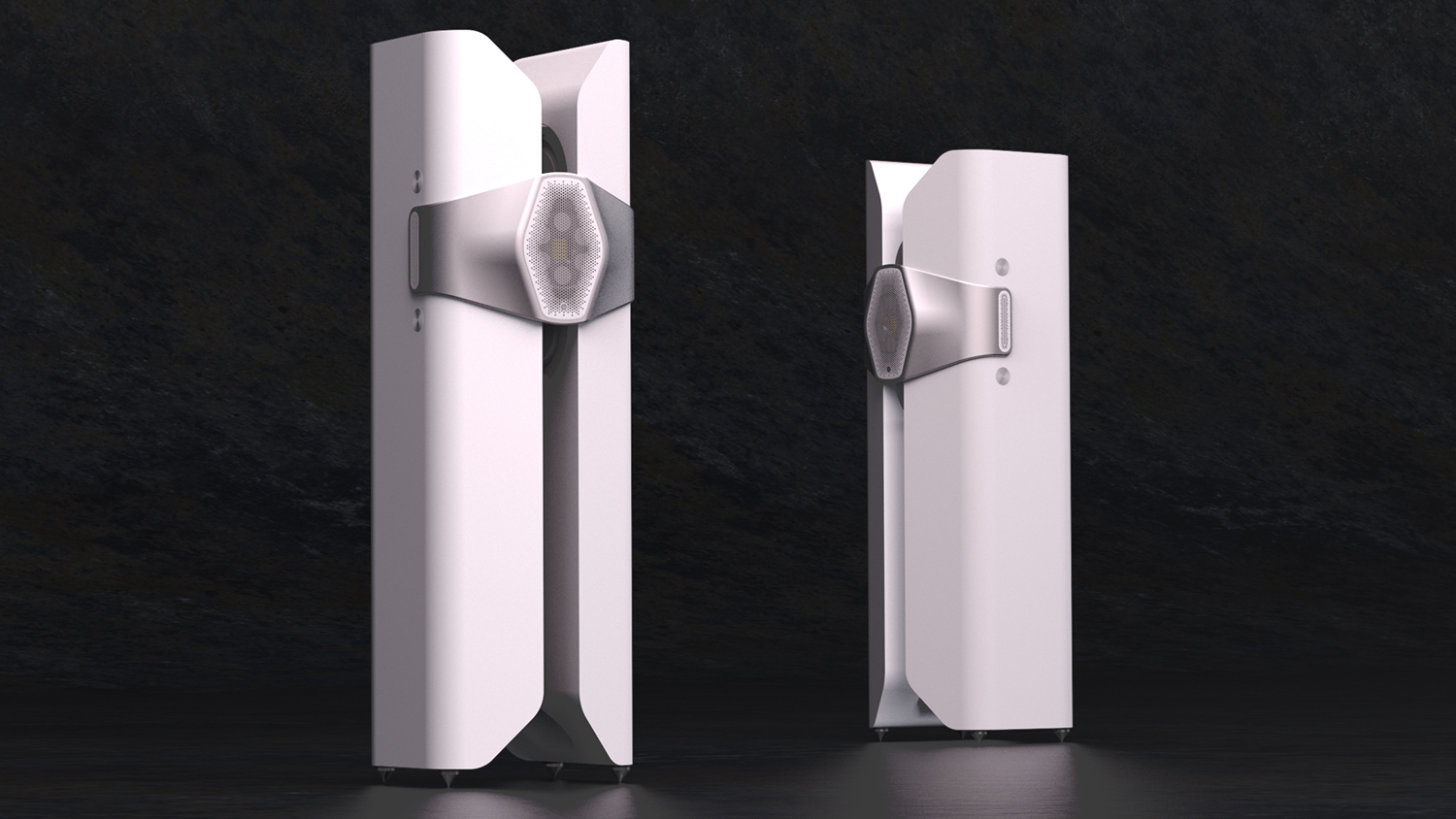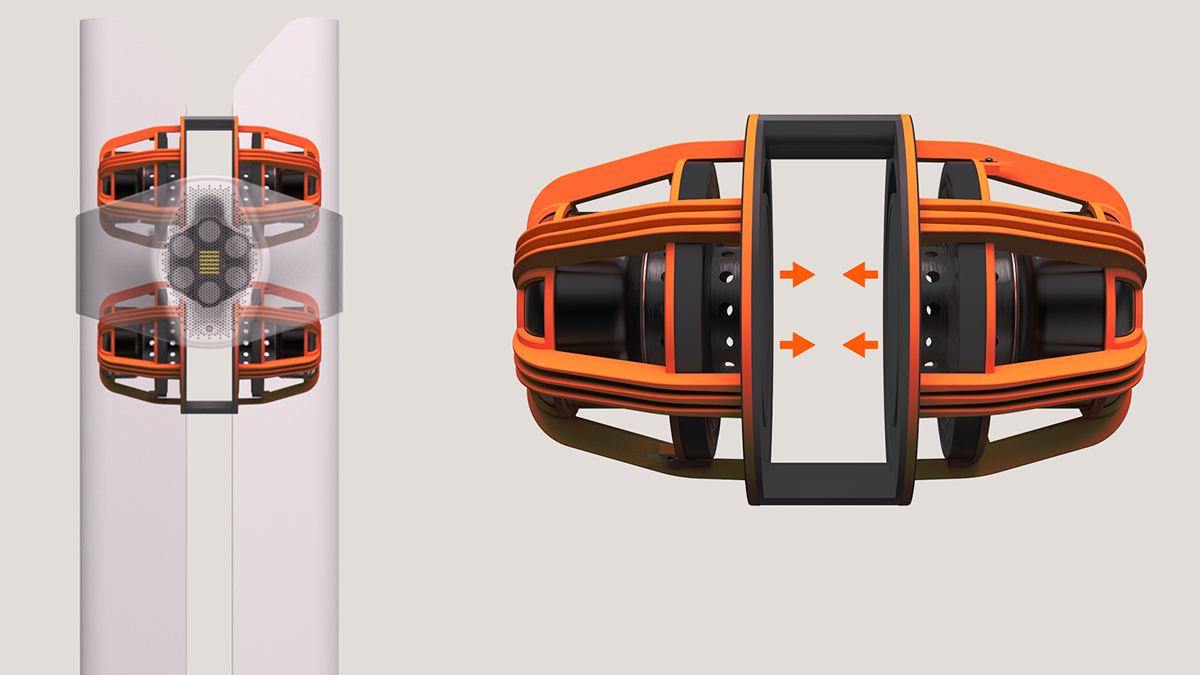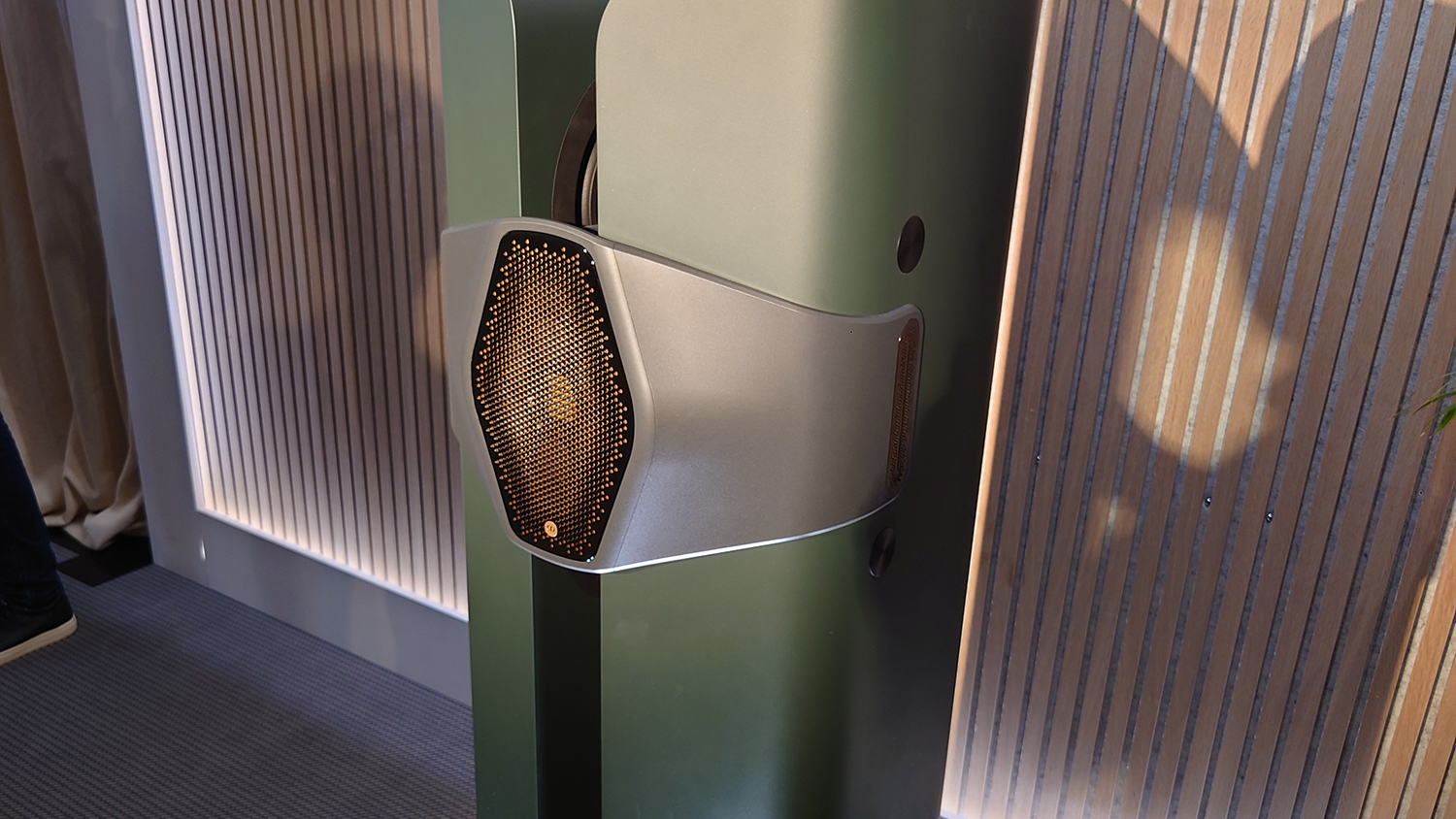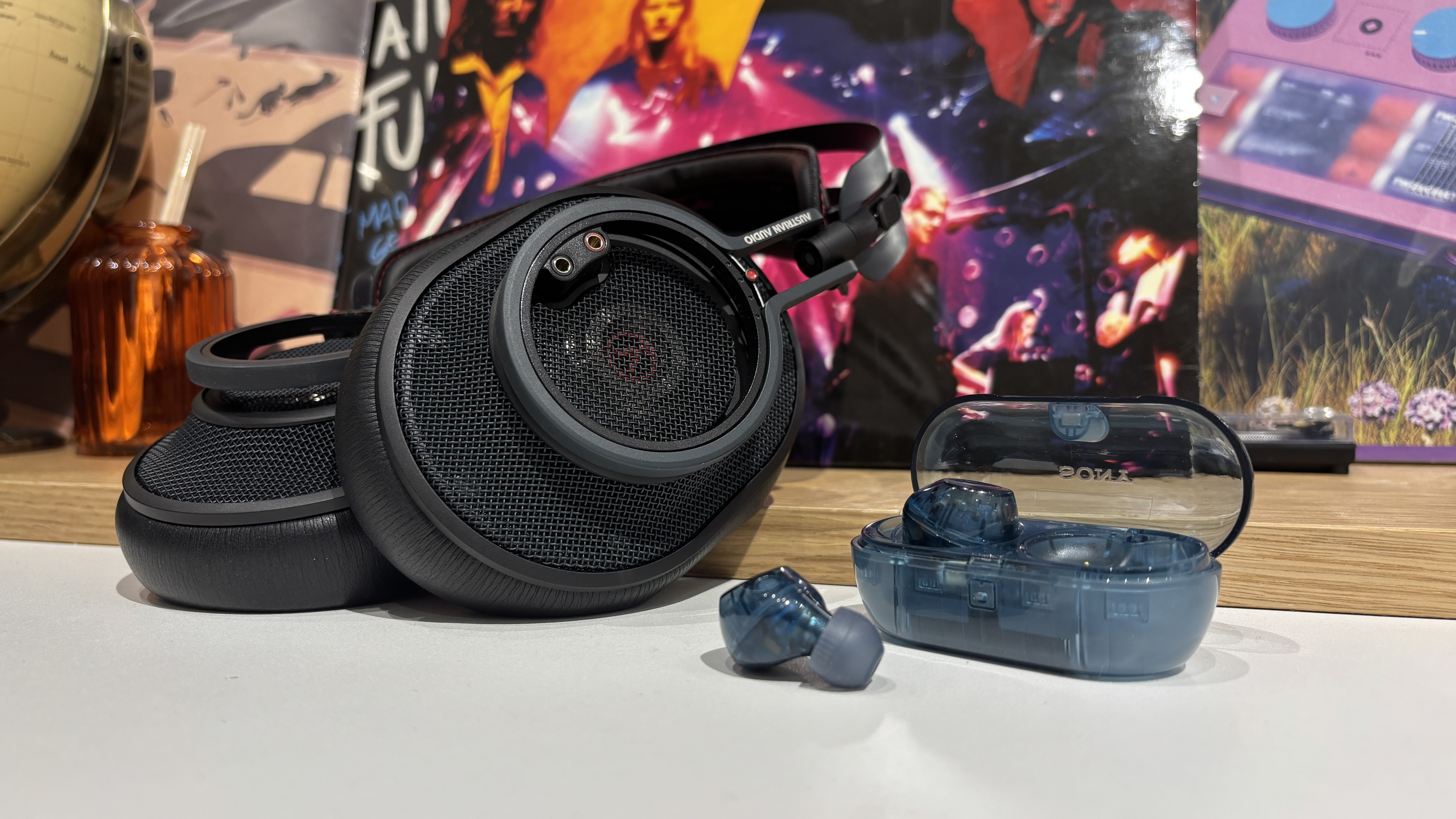Engineering over chasing a sound: how Monitor Audio is designing Hyphn for the new generation
Monitor Audio's technical director talks us through the company's Hyphn speakers

Monitor Audio is on the verge of releasing a new flagship speaker called Hyphn. An early version, then called Concept 50, was first shown at the Munich High-End show last year.
Eager to hear more about them, What Hi-Fi? caught up with Monitor Audio’s technical director, Michael Hedges to discuss how it’s designing the new speakers to appeal to a new generation of hi-fi fans and its wider plans this year as a part of our special British Hi-Fi Week 2023 event.
Here’s what we found out.
Engineering over chasing a sound

Hedges told us Hyphn's release is a key one for the company, acting as a “statement of intent” for its future approach to hi-fi design.
“I think you've seen Hyphn. That's our interpretation of solid engineering and a solid modern understanding of how we hear. Hyphn is a statement of intent, as well as an amazing loudspeaker,” he said.
Hedges added that the speakers are based on Monitor Audio’s overt focus on putting engineering first ahead of “chasing a specific sound.”
“I believe it's naive to peg yourself to a specific target profile. For example, if I went ‘right, Monitor Audio’s sound is this target profile, every loudspeaker has to meet this target profile’, it might be that as we understand more about psychoacoustics - about how we hear and how we react in a room - that target profile is not appropriate anymore, but we've pegged our whole brand to it. I actively don't do that. We're about solid good engineering,” he told What Hi-Fi?.”
Get the What Hi-Fi? Newsletter
The latest hi-fi, home cinema and tech news, reviews, buying advice and deals, direct to your inbox.
He added this approach instead focuses on getting a speaker’s core parts right and then building off them to make sure it delivers the best audio possible at a technical, as well as real-world level.
“Get the basics right before you start talking about advanced technologies and other things [...] If you get all your basic engineering right then you can stack on top of that [the] key technologies that really work,” he said.
Hedges added that Monitor Audio goes to great lengths to make sure its measurements match its listening room sessions, so the firm can always identify and back up any claims it makes around how its products sound with precise measurements.
“We are very engineering-led in that, everything we do, even in a listening room, needs to have an engineering background to it. We also spend a huge amount of time listening to the product, and it's that foot-tapping enjoyment of the music that matters most to us.
“[But] if you hear something that's wrong with the loudspeaker we should be able to then back that up with understanding how that affects the measurements [we’ve taken].”
He added this is very different from traditional speaker designs,
“You used to be able to develop a loudspeaker in a two-year time frame. But what you'd get in that two-year time frame was very different from what you get now. That's because we're able to get the basics done very, very early in the project and focus on the detail using simulations,” he said.
“What we're finding is that the lessons learned from previous generations are really applicable to what we’re doing next time - rather than in the past, there was a lot of guesswork or it was based on experience, so if that person left you didn’t necessarily [get continuity] - if we can't measure it, we can't understand it.”
Getting people in front of proper hi-fi

Hedges said that the bigger challenge the company faces isn’t designing future-proof, great-sounding speakers - it’s getting them in front of younger listeners.
“I think this is something that every audio company probably struggles with. There's probably a strategy from a marketing point of view. But I think from a technical point of view, it's about getting people to experience the product,” he said when asked about getting younger people into hi-fi.
“What we find is it's you can have a long conversation with people about how great the loudspeaker is - how it measures, what it does, what the distortion is - and it's kind of semi meaningless.”
He added the big battle is getting younger listeners to hear the differences between proper hi-fi and lower-end headphones and Bluetooth speakers.
“It's to sit them down and play music so it engages with them on a new level - they don't know what they're missing and they don't know how to apportion value to that change [...] You listen to loudspeakers and you're like, ‘hang on a minute, I didn't know, it could get better.’ Then you know if it’s worth more to you. We and the industry have this challenge - that in order to get people to buy in, especially the younger generation, we have to get them to experience it.”
Hedge’s comments mirror those of Cambridge Audio CEO Stuart George, who reiterated a similar sentiment about getting the next generation into hi-fi during an interview with us earlier this week.
This article is part of What Hi-Fi?’s week-long British Hi-Fi special event. Started on 20th March, the event will see our team of experts celebrate the best of British Hi-Fi past and present. Make sure to keep checking out our British Hi-Fi Week hub for all the latest coverage!
MORE
These are the best speakers we've reviewed
Check out our curated picks of the best floorstanding speakers
Need something more compact? These are the best bookshelf speakers we've tested

Alastair is What Hi-Fi?’s editor in chief. He has well over a decade’s experience as a journalist working in both B2C and B2B press. During this time he’s covered everything from the launch of the first Amazon Echo to government cyber security policy. Prior to joining What Hi-Fi? he served as Trusted Reviews’ editor-in-chief. Outside of tech, he has a Masters from King’s College London in Ethics and the Philosophy of Religion, is an enthusiastic, but untalented, guitar player and runs a webcomic in his spare time.
